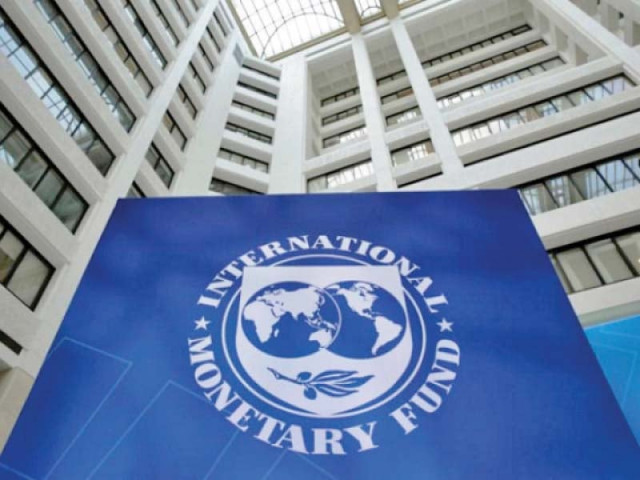Govt faces tough choice as IMF recommends harsh tax measures
Fund suggests slapping new taxes worth Rs160b, raising GST to 18%

The PTI has promised to reverse the current taxation policy, which is not only regressive but is also hurting the poor more than the affluent. It will be a challenge for the govt to impose the new taxes as well as strike a balance between direct and indirect taxes. PHOTO: FILE
The IMF mission has sought tax efforts equal to 0.4% of gross domestic product (GDP) or Rs160 billion as part of an overall steep fiscal adjustment under the programme, said highly-placed sources in the Ministry of Finance.
It has also asked the Federal Board of Revenue (FBR) to prepare a strategy for releasing tax refunds and present it to the Fund before the end of policy talks.
Besides the Rs160-billion tax efforts, the IMF has suggested improving revenue collection at the import stage due to 26% rupee depreciation since January this year and further devaluation under the IMF programme, they added.
The authorities are working out the tax target on the basis of a minimum 12.5% nominal GDP growth rate.
The total impact of new taxes, administrative efforts and windfall gains from the currency devaluation is estimated at around 0.9% of GDP, the sources said. However, Pakistani authorities have not yet accepted these demands, claimed the finance ministry sources. Unlike in the past, when the Q-block was spearheading the policy talks, this time State Bank of Pakistan Governor Tariq Bajwa is playing the lead role due to his experience as the finance secretary and FBR chairman.
Pakistan and the IMF have been negotiating a bailout package aimed at avoiding default on international payments. Pakistan is also in negotiations with the United Arab Emirates and China to secure financial packages. No announcement has been made at the end of a bureaucrats-led mission to China on Sunday.
Pakistan booked the highest-ever current account deficit of $18 billion in the last fiscal year, which eroded its foreign exchange reserves. The deficit has started shrinking marginally, standing at $4.84 billion in the July-October period, down by 4.4%.
The IMF is asking Pakistan for a steep fiscal adjustment as it wants to see the budget deficit at around 3.5% of GDP at the end of its programme. The authorities are relying mainly on tax efforts to cut the deficit as there is a little room on the side of expenditures, said the sources.
The sources said one of the major demands of the IMF is to increase the GST rate by at least one percentage point to 18%. This will fetch a minimum Rs75 billion to Rs80 billion in additional revenues annually. In the remaining period of the current fiscal year, the 1% additional GST could fetch around Rs40 billion, the officials added.
At one stage, the IMF had asked Pakistan to increase the GST rate to 19%, they added. Last time, Pakistan had increased the GST by 1% to 17% under the previous three-year $6.2 billion Extended Fund Facility (EFF).
The FBR also charges higher-than-the-standard 17% GST from unregistered people, which currently stands at 3%. In case the government accepts the IMF demand, this rate will go up to 21%.
Pakistan’s direct tax collection is around 37% of the total collection including withholding taxes. The government has promised to reverse the current taxation policy, which is not only regressive but is also hurting the poor more than the affluent.
It will be a challenge for the government to impose new taxes as well as strike a balance between direct and indirect taxes.
The officials said the IMF was demanding that Pakistan also increase the income tax rates. However, there is little room for this as the FBR has already tapped almost every possible avenue, the sources added.
After coming to power, the PTI government had reduced the FBR’s annual tax collection target to Rs4.398 trillion. In the first four months of current fiscal year, it suffered a shortfall of Rs68 billion despite announcing a mini-budget two months ago.
It is not clear whether the Rs160 billion worth of additional taxes are aimed at increasing the overall target to Rs4.560 trillion or some of these measures will cover the shortfall.
During a meeting with Prime Minister Imran Khan, Finance Minister Asad Umar had talked about the possibility of new tax measures due to the FBR’s failure to meet its targets. The sources said the IMF has been assured that the FBR would be able to recover the shortfall in the coming months by collecting Rs45 billion through audit cases. Another Rs55 billion will be recovered by settling the cases stuck in litigation.
The officials said another possible avenue to meet the IMF’s demand could be to raise sales tax rates on petroleum products, which are currently far below the standard rate.
The government is charging 12% GST on high-speed diesel and only 4.5% on petrol. One indication of accepting the IMF demand will be that the GST rates on petroleum products could go up from December 1.
The lower GST rates on petroleum products are affecting tax collection by around Rs8 billion per month, according to the sources.
Published in The Express Tribune, November 16th, 2018.
Like Business on Facebook, follow @TribuneBiz on Twitter to stay informed and join in the conversation.



















COMMENTS
Comments are moderated and generally will be posted if they are on-topic and not abusive.
For more information, please see our Comments FAQ